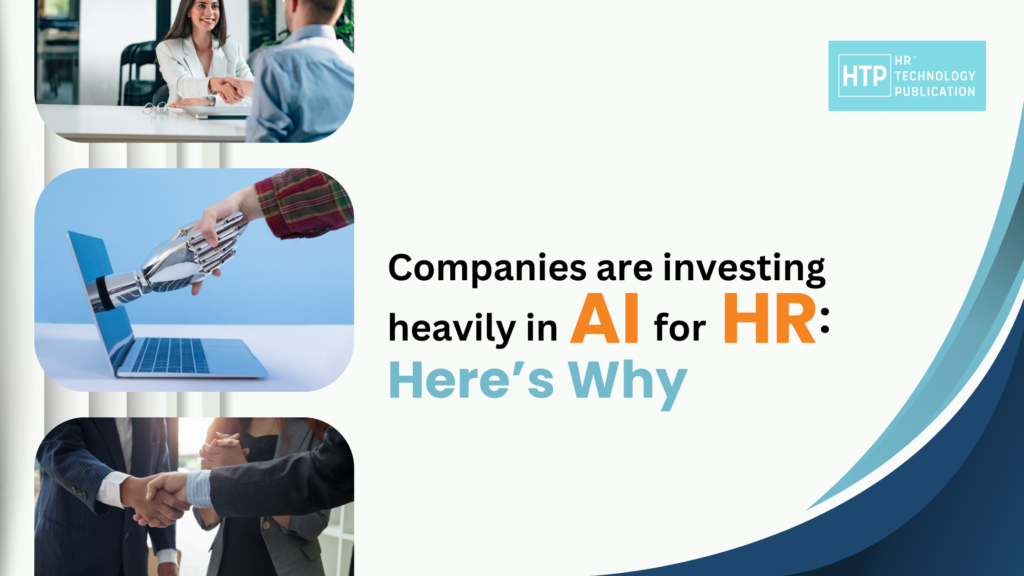As industries embrace innovation, AI stands at the forefront of HR evolution. Its integration revolutionizes traditional HR functions, automating tasks, and unlocking insights. From recruitment to performance evaluation, AI streamlines processes, making data-driven decisions that redefine workforce management. With predictive analytics and machine learning, HR professionals harness AI’s power to forecast trends and tailor employee experiences. The rise of AI in HR signifies a shift towards precision, efficiency, and personalized engagement, reshaping how organizations attract, retain, and nurture talent.
The recent report showcases a striking revelation: 68% of companies recognize AI’s profound impact on job accuracy within HR realms. This acknowledgement underscores AI’s transformative role, validating its efficacy in enhancing operational efficiency and decision-making. From refining talent acquisition strategies to fostering employee engagement, AI’s influence spans diverse HR domains, shaping a future where data-driven insights fuel informed choices. As companies delve deeper into AI integration, this statistic resonates as a testament to the tangible benefits and the promising potential AI holds in reshaping the HR landscape.
The AI Advantage in HR
In a recent survey encompassing diverse industries, a resounding 68% of companies concurred on the profound impact of AI in enhancing job accuracy within AI in HR functions. This consensus illuminates the pivotal role AI plays in revolutionizing traditional HR practices. Here’s a closer look at why Artificial Intelligence is hailed as a game-changer in job precision:
– Data-Driven Decision Making:
AI algorithms process vast amounts of data swiftly, aiding AI in HR professionals in making informed decisions. The accuracy in gauging candidate qualifications and cultural fit contributes significantly to better hiring choices.
– Predictive Analytics:
Leveraging historical data, Artificial Intelligence predicts future trends in talent acquisition, identifying potential skill gaps and turnover risks. This proactive approach enables preemptive strategies for talent retention and development.
– Efficiency in Matching Skills:
Through AI in HR matches candidate skills with job requirements more accurately, ensuring a better fit between the role and the individual.
– Reduced Bias:
AI minimizes human bias in the recruitment process by focusing on qualifications and capabilities, fostering diversity and inclusivity.
The consensus of 68% showcases the industry’s acknowledgement of AI’s role in augmenting job accuracy, emphasizing its integral place in modern HR strategies.
Streamlining Processes: AI in HR Operations
AI integration in HR operations has sparked a paradigm shift, streamlining processes and optimizing efficiency across various functions. The transformative impact includes:
– Automated Screening:
AI-powered systems efficiently screen resumes, saving time and resources for HR teams, leading to more efficient shortlisting of candidates.
– Personalized Employee Experiences:
AI analyzes employee data to personalize training and development programs, enhancing individual performance and satisfaction.
– HR Analytics and Reporting:
AI algorithms generate insightful analytics, aiding HR in strategic planning, workforce management, and predictive modelling for future trends.
– Enhanced Employee Engagement:
Chatbots and AI-driven communication tools facilitate instant responses to employee queries, fostering better engagement and satisfaction levels.
AI in HR processes not only optimizes operations but also empowers HR professionals to focus on strategic initiatives, fostering a more agile and responsive workplace.
The Benefits
1) Talent Acquisition: AI’s Contribution to Finding the Right Fit
- Smart Candidate Matching:
AI analyzes candidate profiles against job requirements, ensuring precise matches for roles, leading to better hires.
- Efficient Sourcing:
AI-driven tools scour multiple channels swiftly, expanding the talent pool and identifying top candidates quicker, enhancing recruitment speed.
- Predictive Analysis:
AI predicts candidate success based on historical data, enabling HR to focus on individuals with higher potential, and fostering better hiring decisions.
2) Employee Engagement and Retention: AI Strategies for a Happy Workforce
- Personalized Training:
AI in HR analyzes skills and preferences, tailoring training programs for individual growth, and boosting engagement and performance.
- Feedback and Recognition:
AI-powered systems provide real-time feedback and recognition, boosting morale and fostering a positive work culture.
- Retention Analysis:
AI predicts potential attrition factors, allowing proactive measures for employee retention, and ensuring a satisfied and committed workforce.
3) Learning and Development: AI-Powered Training and Growth
AI in HR has emerged as a transformative force, revolutionizing traditional training methodologies and fostering unparalleled growth opportunities for employees. Here’s an exploration of the impactful role AI plays in powering training and nurturing continuous development:
– Personalized Learning Paths:
AI algorithms analyze individual skill sets, learning styles, and performance data to tailor training modules, ensuring personalized and efficient learning experiences for each employee.
– Adaptive Learning Platforms:
AI-powered platforms dynamically adjust content based on an individual’s progress, challenging them at the right level and pacing, optimizing retention and comprehension.
– Data-Driven Insights:
AI gathers and analyzes vast amounts of training data, offering actionable insights to L&D professionals, and enabling them to refine and improve training programs for maximum effectiveness.
– Predictive Skill Mapping:
AI in HR predicts future skill requirements based on market trends and organizational needs, guiding employees toward relevant learning opportunities, and ensuring alignment with evolving job demands.
AI-powered training doesn’t just impart knowledge; it fosters a culture of continuous learning. It facilitates skill development aligned with both personal aspirations and organizational goals, nurturing a workforce capable of adapting to the rapid pace of change in today’s dynamic landscape. By leveraging AI in L&D initiatives, companies can future-proof their workforce, driving innovation and sustainable growth while empowering employees to thrive in an ever-evolving professional landscape.
Conclusion
AI in HR processes has been nothing short of revolutionary. It has redefined traditional HR practices, enhancing accuracy, efficiency, and decision-making. By automating repetitive tasks, AI liberates HR professionals to focus on strategic initiatives. The ability to analyze vast datasets rapidly has elevated talent acquisition, enabling precise candidate matching and predicting future trends for proactive decision-making. Moreover, AI-driven insights have optimized employee engagement, learning, and development, fostering a more satisfied and skilled workforce. This transformation isn’t just about efficiency; it’s about reshaping the entire HR landscape, infusing it with data-driven precision and strategic prowess.



